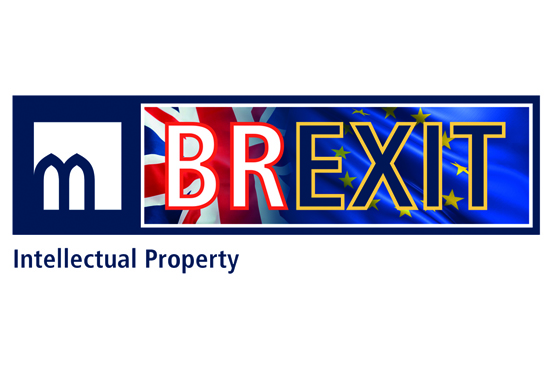Author
Average read time: 4 minutes.
The doctrine of the “exhaustion of rights” relates to the limits to which someone can rely on their intellectual property (“IP”) rights. Where a product in which IP rights subsist is placed on the market within a specified territory by, or with the permission of, the rights holder, they lose the right to manage distribution and resale within that territory.
The exhaustion of rights allows for the parallel importation of goods – where genuine goods are sold into one territory by, or with consent of, the rights holder, but then imported for sale into another territory without the explicit consent of the rights holder.
The exhaustion of rights doctrine is also a fundamental element of the free movement of goods. Accordingly, the doctrine is unlikely to remain unscathed by the UK’s withdrawal from the EU.
Current position
As it stands, the UK is part of the EEA exhaustion scheme. Where goods have been put on the market anywhere in the EEA by or with the IP rights holder’s permission, the IP rights are deemed exhausted. This means that the rights holder cannot, in such circumstances, rely on their IP rights to prevent the goods from being resold or commercially exploited in other parts of the EEA.
As a result of European Court of Justice (“ECJ”) decisions, a substantial evidential burden is put on someone wishing to import goods, already placed on the market outside of the EEA, to prove that the IP holder has, expressly or by inference, consented to those goods entering into the EEA market.
Brexit
Exhaustion of rights is dealt with briefly in the draft withdrawal agreement (“Withdrawal Agreement”). Article 61 states that:
“Intellectual property rights which were exhausted both in the Union and in the United Kingdom before the end of the transition period under the conditions provided for by Union law shall remain exhausted both in the Union and in the United Kingdom.”
Therefore, where the IP rights of goods have already been exhausted in the UK and EU before the end of the transition period, they will remain exhausted in the UK and EU i.e. the IP holders will not be able to prevent their resale in other parts of the EEA.
There are two crucial shortfalls to this wording – it does not specify what will happen: (i) to goods after the end of the transition period; or (ii) to goods coming from outside the EEA before or after this date.
Deal and transition
Where the UK leaves with a deal, after the end of the transition period it is very possible that the UK will move towards a concept of “international exhaustion”. If so, where goods have been placed on the market by the IP rights holder, or with their consent, in any part of the world, the burden will fall on them to justify why these goods cannot be imported and/or resold within the UK.
However, if the EEA exhaustion scheme remains in place in other EEA member states, the holder of the IP rights in goods placed on the market in the UK will be able to rely on these rights to prevent their resale into other parts of the EEA.
No-deal Brexit
Given that the current withdrawal bill places a ban on any extension to the transition period, we consider it prudent to bear in mind the potential impact of a no-deal Brexit. The government’s technical guidance on the Exhaustion of intellectual property rights if there’s no Brexit deal (“Technical Notice”) indicates that the UK will continue to recognize the EEA exhaustion scheme following exit day to provide continuity in the immediate term for businesses and consumers. Therefore, the position for the importation of goods into the UK post-Brexit in the short term is unlikely to change and parallel imports from the EEA will be able to continue.
However, the Technical Notice adds that, exhaustion of rights may not apply to those goods imported from the UK to the EEA. In this scenario, therefore, businesses conducting such imports may need to obtain the rights holder’s permission to export the goods into the EEA.
Conclusion
Given the unknowns surrounding the exhaustion of rights going forward, it is prudent for businesses to take the following into account:
- If the Withdrawal Agreement applies, goods which are already in free circulation within the EEA before the end of the transition period will be able to continue to be traded within the UK and EU member states;
- Businesses trading with Europe will need to take into account the potential restriction on exports from the UK into the EEA arising from IP rights, either after the transition period, or at any point following a no-deal Brexit – they may need to obtain the rights holder’s permission to do so;
- Businesses which experience competition from parallel importers should monitor the position to establish potential opportunities or threats and adapt accordingly;
- Businesses trading globally may find that opportunities are created if the UK moves towards the international exhaustion doctrine after Brexit.
If you would like more information on this topic, please get in touch with David Thompson, Partner in Michelmores’ Commercial team.
Print article

